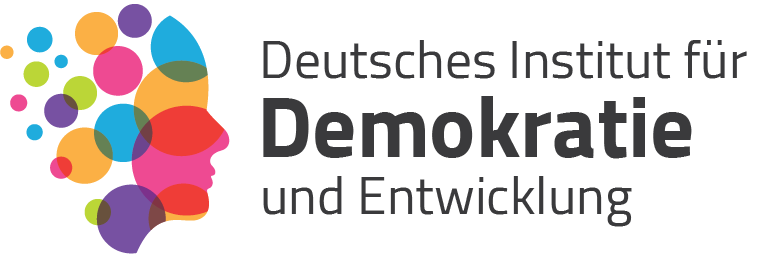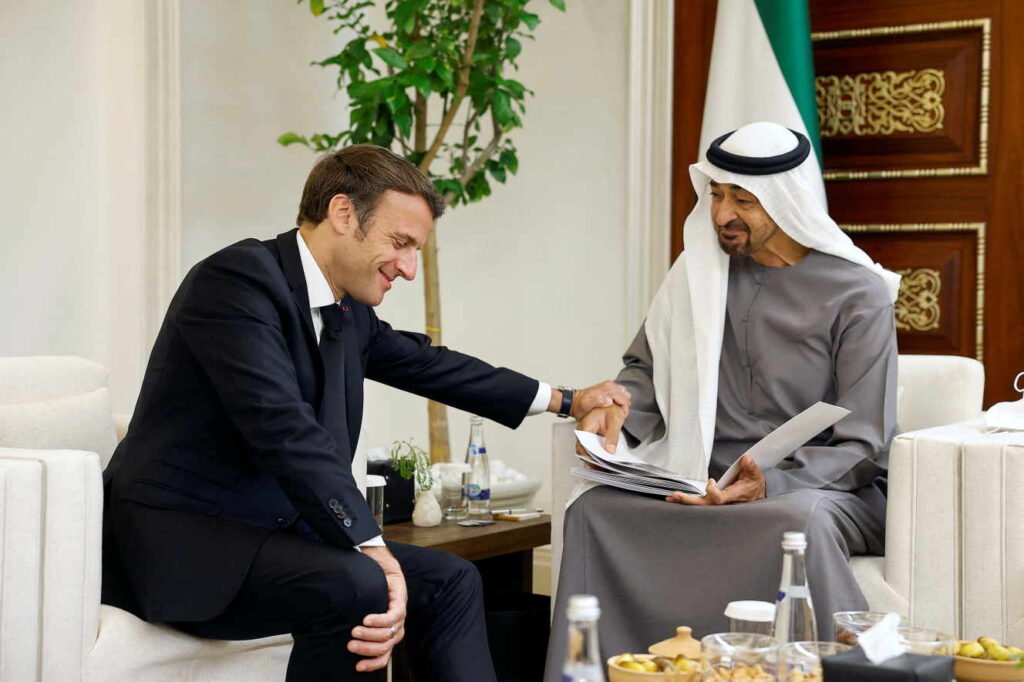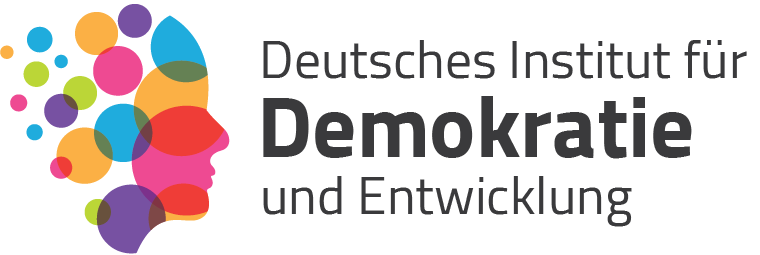Following the president of the United Arab Emirates’s to France, DIDE sent an open letter to Emmanuel Macron, bringing attention to the state of rights and freedoms in this nation. Please read the open letter below.
Greetings, Mr. President.
After the visit of the President of the United Arab Emirates (UAE), Mr Mohammed ben Zayed Al Nahyane’s visit to France, DIDE wish to draw your attention to the situation of rights and freedoms in this country, and urge you to express your concern about the serious human rights violations in UAE.
- THE UNITED ARAB EMIRATES’ VIOLATIONS OF HUMAN RIGHTS.
a- Human rights defenders in the UAE face violations and repression.
Since the Arab revolutions began, the UAE authorities have increased persecution of critics and members of civil society. As detailed in the FIDH study issued in December 2021, human rights activists and defenders are frequently subjected to arrest, arbitrary detention, judicial harassment, incarceration, surveillance, torture, and ill-treatment. This research demonstrates how the UAE, a key partner of Western powers, is a uniquely brutal dictatorship in which any opposing voice risks incarceration, enforced disappearance, and torture.
This is demonstrated by the fate of human rights campaigners like Ahmed Mansoor, recipient of the Martin Ennals Award for Human Rights, who was convicted for criticizing the regime and remains imprisoned after having served his term.
In a European Parliament resolution, Ahmed Mansoor was described as “the last human rights champion in the UAE who was able to publicly oppose the government.” He operated an opposition blog in the UAE, asking for reform and the protection of human rights. In April 2011, he was detained and accused with breaking the UAE’s defamation laws. He was convicted to three years in prison, then pardoned and freed, before being arrested again in March 2017 and detained in pre-trial custody for almost a year until being sentenced to ten years in prison and a fine of over one million dirhams on May 29, 2018. He has apparently been confined in solitary confinement in a cramped cell without a bed or water since his sentence was announced in March 2018. On May 7, 2019, the United Nations Special Rapporteur on Torture and six other UN human rights experts criticised the situation, stating that the conditions might amount to torture. The European Parliament published a resolution on his case in October 2018, strongly condemning the harassment, persecution, and arrest of Ahmed Mansoor and all other human rights activists simply for their human rights activities and exercise of their right to free expression. Ahmed Mansoor, on the other hand, is still being detained in solitary confinement at Abu Dhabi’s Al-Sadr jail under appalling conditions.
The “UAE 94” trial, which involved 94 Emirati attorneys, professors, judges, teachers, and student leaders peacefully pushing for political reform, is another example of persecution. Many were sentenced to between 7 and 10 years in jail at the conclusion of the trial on 2 July 2013, for forming, organizing, and operating an organization intent at overturning the government, in violation of Article 180 of the Penal Code.
According to the evidence acquired by FIDH, the Gulf Centre for Human Rights (GCHR), the Arab Network for Human Rights Information (ANHRI), and the Cairo Institute for Human Rights Studies (CIHRS), there were major violations of international fair trial standards during this prosecution. Furthermore, audio recordings of several of these captives show that they were tortured and exposed to brutal behavior and treatment.
Women human rights campaigners confront unique challenges since they are frequently tortured and violently ostracized from the public domain. One of the most egregious examples is the agony that resulted in the death of prisoner Alia Abdel Nour in 2019, following a protracted struggle with cancer within the UAE jail. Amina Al-Abdouli and Maryam Al-Balushi, whose sentences expire on November 19, 2020, are among the women rights advocates who have fulfilled their sentences yet remain imprisoned.
Finally, it should be underlined that this repression also targets human rights advocates who are not UAE residents but rather foreign people who advocate for reforms in other countries. For example, Ahmed Etoum, a Jordanian citizen living in the UAE, was sentenced to ten years in jail in February 2021 on vague allegations of “acts against a foreign state,” following Facebook posts in which he was peacefully criticizing the Jordanian authorities. AbdelRahman al-Nahhass, a resident of the UAE since 2013, was arrested and unjustly jailed for 13 months before being moved to a secret detention facility in 2019. He has had no communication with his family since. Despite a statement addressed to UAE authorities in June 2021 by the UN Special Rapporteur on Human Rights Defenders and numerous other UN experts, he remains detained.
UN experts have repeatedly voiced their alarm and demanded for the release of these human rights advocates, but nothing has been done. The UAE must halt these inhumane detentions, which flagrantly violate international human rights norms.
We argue the president of France to demand the immediate release of Ahmed Mansoor, Amina Al-Abdouli and Maryam Al-Balushi, Ahmed Etoum, AbdelRahman al-Nahhass, and all the defenders convicted in the UAE 94 trial at your meeting with Mohammed bin Zayed.
b- Serious breaches of international humanitarian law and human rights in Yemen
While the UAE has declared the departure of its soldiers from Yemen since 2019, assaults against civilians have persisted, as have severe breaches of international law committed during the conflict.
The UN Group of Eminent Experts on Yemen emphasized the Emirati authorities’ direct and indirect involvement in some of the most serious violations committed on the ground during the Yemeni conflict. Indeed, the EGE stated in a 2019 report on Yemen’s human rights situation since 2014 that it had “reasonable grounds to believe that the Governments of Yemen, the United Arab Emirates, and Saudi Arabia (…) are responsible (…) for arbitrary deprivations of the right to life, liberty, and security of the person.”
According to the GEE and Human Rights Watch, members of the UAE government may have carried out air attacks in contravention of the principles of distinction, proportionality, and prudence. Furthermore, it is probable that members of the UAE administration exploited malnutrition as a kind of warfare. These actions are in violation of international humanitarian law and may constitute war crimes.
Furthermore, the GEE refers to the Government of Yemen and coalition countries, particularly the United Arab Emirates, committing unjust conduct. Murder, torture, cruel or inhuman treatment, rape, affronts to personal dignity, denial of the right to a fair trial, and the recruitment or use of children under the age of 15 to participate directly in hostilities are examples of such actions. Such activities might be classified as war crimes, bringing the Emirati government under international scrutiny.
We ask the French president to raise his concerns about these issues with Mr. Mohammed bin Zayed Al Nahyane and demand an end to these violations.
- ARMS SALES IN YEMEN AND ACCOUNTABILITY FOR VIOLATIONS
“Some individuals make a lot of money from conflict. We call them war profiteers”. Our organizations can only agree with your remark on the Ukrainian war, but would want to connect it to the 16 billion euro contract signed last December with the United Arab Emirates for the sale of Rafale fighter planes and Caracal helicopters.
By continuing to sign arms deals with the UAE, France contributes to the continuation of the crisis in Yemen and the horrific human rights crimes perpetrated there.
Since the commencement of the crisis in Yemen in 2015, various non-governmental organizations (NGOs) have highlighted the presence of French weapons delivered to the Saudi-led coalition, of which the UAE is a part. In violation of national law, international human rights law, and international humanitarian law, this equipment was used against civilian populations.
The sale of military weaponry is illegal under French law unless an exemption has been granted by the executives. This concept, incorporated in the Defense Code, aims to ensure that ‘Made in France’ weaponry do not fuel armed conflict, civil war, or human rights violations. Despite this, French arms sales to the UAE have persisted due to the opacity of the defense secret licensing procedure. Our December 2021 study details how France reportedly gave roughly 1,000 export licenses, or ‘express authorizations,’ to the UAE between 2015 and 2020, evading the export restriction.
Furthermore, France has accepted the European Council’s Common Position 2008/944/CFSP as a signatory to the Arms Trade Treaty. The latter enshrines the prohibition on the sale of equipment that might be used to conduct significant human rights abuses, as well as the exporting states’ duty of vigilance. At a time when the war in Yemen has resulted in the world’s worst humanitarian catastrophe since World War II, and the number of civilian victims continues to climb, France continues to provide armaments to the Saudi-led coalition, which includes the UAE. As a result, France looks to be failing to satisfy its national and international responsibilities in this area, making it complicit in grave human rights breaches.
As a result, we encourage you to refrain from sending weapons that may be used in Yemen’s war, which would be a violation of international human rights and humanitarian law.
Please accept our heartfelt gratitude, Mr. President.
The German Institute for Democracy and Development.


